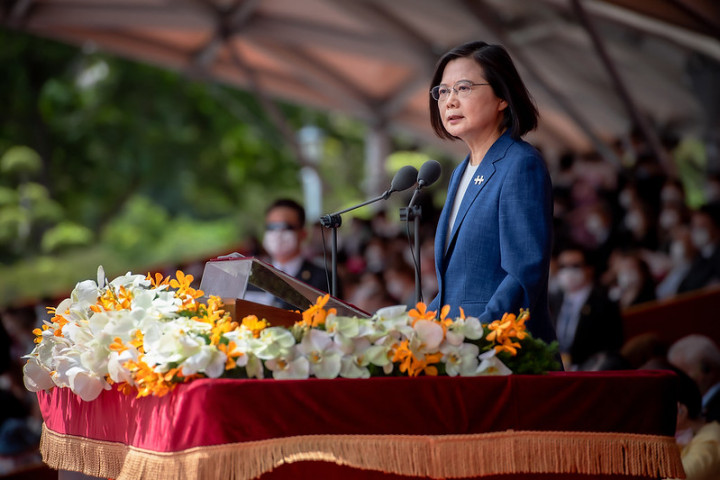
Taipei, Oct. 18 (CNA) The results of a survey released on Monday showed that most of the respondents supported President Tsai Ing-wen's (蔡英文) cross-Taiwan Strait stance in her recent National Day speech.
The randomly conducted survey of 1,081 individuals asked two questions about a specific part of Tsai's Oct. 10 speech in which she laid out "four commitments":
"Let us here renew with one another our enduring commitment to a free and democratic constitutional system, our commitment that the Republic of China and the People's Republic of China should not be subordinate to each other, our commitment to resist annexation or encroachment upon our sovereignty, and our commitment that the future of the Republic of China (Taiwan) must be decided in accordance with the will of the Taiwanese people."
The poll revealed that 67.9 percent of the respondents supported Tsai's "four commitments," while 12.3 percent did not, and 19.8 percent were either unsure of the question or refused to comment.
On Tsai's proposition that "the Republic of China and the People's Republic of China should not be subordinate to each other," 70.6 percent of the interviewees supported this, while 15 percent did not. Those who either refused to comment or were unsure of the question were 14.4 percent.
When it came to Tsai's cross-strait policies as a whole, 47.7 percent expressed satisfaction while 24.3 percent did not, and 28 percent either did not have an answer or refused to comment.
The survey also asked about the responses from China to Tsai's speech.
Following Tsai's speech, China's Taiwan Affairs Office (TAO) criticized her statements, claiming that Tsai was promoting Taiwan independence and "splitting" history. TAO also alleged that Tsai had been promoting the "two-state" theory.
In APEIA's poll, 19.4 percent agreed with TAO's assertions, while 54.9 percent disagreed and 25.7 percent did not provide an answer.
In regards to China's pledge for peaceful unification under the "one country, two systems" principle, as well as China's insistence that both sides observe the "1992 consensus," 13.8 percent agreed, while 69.5 percent did not, and 16.6 percent either did not provide an answer or refused to comment.
The survey was conducted between Oct. 14 and Oct. 16 by the non-governmental Asia-Pacific Elite Interchange Association (APEIA).
It had a confidence level of 95 percent and a margin error of plus or minus 2.98 percent.